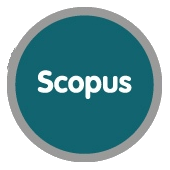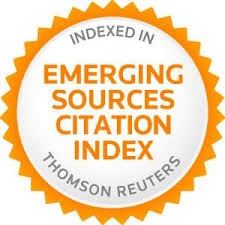Impacto de las pruebas en gran escala en contextos de débil tradición técnica: Experiencia de México y el Grupo Iberoamericano de PISA
Resumen
El artículo inicia con un breve repaso del desarrollo de la psicometría, que destaca la brecha entre la situación de Estados Unidos y la de otros países, sobre todo de menor desarrollo, en cuanto a la existencia de personal calificado en temas técnicos complejos. En seguida se hacen consideraciones sobre la noción de validez y su importancia, en especial en cuanto a la validez de consecuencias. Luego se describe el impacto de las evaluaciones, con especial atención a las de gran escala y las internacionales, con el caso de PISA, considerando en especial el caso de países con una tradición psicométrica débil. En la conclusión se discute el tema, a partir de la experiencia de México y del Grupo Iberoamericano de PISA.
Palabras clave
Referencias
American Educational Research Association, American Psychological Association, National Council on Measurement in Education (2014). Standards for educational and psychological testing. Washington, Authors.
Baker, E. y Choppin, B. (1990). Minimum competency testing. En Walberg, H y Haertel, H. (Eds.). The International Encyclopedia of Educational Evaluation. Nueva York: Pergamon Press, pp. 499-502.
Basterra, M. Rosario, E. Trumbull y G. Solano, eds. (2011). Cultural validity in assessment: Addressing linguistic & cultural diversity. New York: Routledge.
Borsboom, D., G. J. Mellenbergh y J. van Heerden (2004). The Concept of Validity. Psychological Review. Vol. 111 (4): 1061-1071. DOI: 10.1037/0033-295X.111.4.1061
Cronbach, L. J. (1988). Five perspectives on validity argument. En Wainer, H & Braun, H (Eds.), Test validity (pp. 3–17). Princeton: IEA.
De Landsheere, G. (1994). Le pilotage des systèmes d'éducation. Bruselas: De Boeck.
De Landsheere, G. (1996). La investigación educativa en el mundo. México: Fondo de Cultura Económica [Edición original en francés de 1986].
Donlon, T. (1984). The College Board Technical Handbook for the Scholastic Aptitude Test and Achievement Tests. Nueva York: College Entrance Examination Board.
Ferrer, G. (2006). Educational Assessment Systems in Latin America: Current Practice and Future Challenges. Washington: PREAL.
Grupo de Trabajo Sobre Estándares y Evaluación. (2007-2008). Evaluaciones nacionales. En Observatorio regional de políticas de evaluación educativa. Santiago, PREAL.
Hamilton, L., Stecher, B. y Klein, S. (2002). Making Sense of Test-Based Accountability in Education. Santa Mónica: RAND.
Husén, T. y Postlethwaite, T. S. N. (1996). A brief history of the International Association for the Evaluation of Educational Achievement (IEA). Assessment in Education: Principles, Policy & Practice, 3(2), 129-141. DOI: 10.1080/0969594960030202
Joncich-Clifford, G. (1968). The Sane Positivist: A Biography of Edward L. Thorndike. Middletown: Wesleyan University Press.
Kane, M. (2006). Validation. En R. Brennan, ed. Educational Measurement (4th ed., pp. 17-64). Westport, American Council on Education & Praeger.
Kane, M. (2013). Validating the interpretations and uses of test scores. Journal of Educational Measurement, 50 (1): 1–73. DOI: 10.1111/jedm.12000
Martínez-Arias, R. (1995). Psicometría: teoría de los tests psicológicos y educativos. Madrid: Síntesis.
Martínez-Rizo, F. (2008). Las evaluaciones educativas en América Latina. En Instituto Nacional para la Evaluación de la Educación (Coord.), Cuadernos de investigación. México: INEE.
Martínez-Rizo, F. (2010a). Assessment practice in policy context: Latin American countries. Peterson, P., Baker E. y McGaw, B. (Eds.). International Encyclopedia of Education (3rd ed., pp. 479-485). Nueva York: Elsevier-Academic Press.
Martínez-Rizo, F. (2010b). Usos y abusos de la evaluación. Este País, agosto (232), 24-27.
Martínez Rizo, F. (Coord.). (2015). Las pruebas ENLACE y Excale. Un estudio de validación. México, INEE.
Martínez Rizo, F. y Roca, E., (Coords.) (2009). Iberoamérica en PISA 2006 Madrid. Santillana.
Mathison, S. y Ross, E. (2008). The Nature and Limits of Standards-Based Reform and Assessment. Nueva York: Teachers College Press.
Messick, S. (1989). Validity. En R. L. Linn, ed. Educational Measurement (3rd ed., pp. 13-103). New York, American Council on Education & Macmillan.
Michell, Joel (2000). Normal Science, Pathological Science and Psychometrics. Theory & Psychology, Vol. 10 (5): 639-667. DOI: 10.1177/0959354300105004
Moss, P. (2008). A critical review of the validity research agenda of the NBPTS at the end of its first decade. En L. Ingvarson y J. Hattie (Eds.), Assessing teachers for professional certification: the first decade of the National Board for Professional Teaching Standards (pp. 257–312). Oxford, Elsevier.
Newton, Paul E. (2013). Does it matter what 'validity' means? Presentación en el Departamento de Educación de la Universidad de Oxford, febrero 4.
Postlethwaite, T. S. N. (1985). International Association for the Evaluation of Educational Achievement. En Husén, T. y Postlethwaite, T. S. N. (Eds.). The International Encyclopedia of Education. Nueva York: Elsevier, pp. 2645-2646.
Rivas, Axel (2015). América Latina después de PISA: Lecciones aprendidas de la educación en siete países (2000-2015). Buenos Aires: Fundación CIPPEC.
Ross, K. (1994). The Establishment of a Southern Africa Consortium for the Monitoring of the Quality of Education. Paris: IIEP.
Sireci, S. G. (2013). Agreeing on Validity Arguments. Journal of Educational Measurement, 50 (1): 99–104. DOI: 10.1111/jedm.12005
Southern Africa Consortium for Monitoring Educational Quality. (1995). Southern Africa Consortium for Monitoring Educational Quality. París: IIPE.
Stiggins, R. (2008). Assessment Manifesto: A Call for the Development of Balanced Assessment Systems. Portland: ETS-ATI.
Vidal, R. Díaz, M. A. et al. (2004). Resultados de las pruebas PISA 2000 y 2003 en México. Habilidades para la vida en estudiantes de 15 años. México: INEE.
Walberg, H. (1990). National assessment of educational progress: retrospect and prospect. En H. Walberg y G. Haertel (Eds.), The International Encyclopedia of Educational Evaluation. (Pp. 435-440). Oxford, New York: Pergamon Press.
Wolff, L. (2004). Educational Assessments in Latin America: The State of the Art. Applied Psychology: An International Review, 53 (2), 192-214. DOI: 10.1111/j.1464-0597.2004.00168.x
Enlaces refback
- No hay ningún enlace refback.


